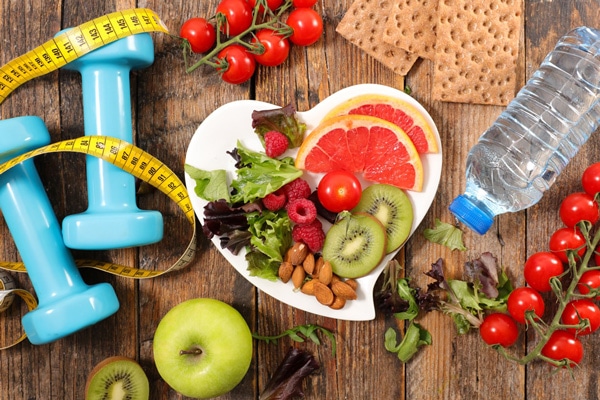There is a delicate balance between consuming alcohol and maintaining liver health. It is important to be aware of how alcohol affects one of the most important organs in your body. Some alcohol-related liver damage can be reversed if an individual stops drinking early enough. In such cases, healing can begin as early as a few days to weeks after the alcohol use ends. But if the liver is severely damaged, it may take several months to heal. Unfortunately, in some cases, if the damage has been long-term, it may not be reversible.
If you are wondering how to heal your liver after dealing with alcoholism, please know that we are here to help you at North Jersey Recovery Center. There is hope for both your physical and psychological health, even after suffering from addiction!
What Does the Liver Do?
Your liver has several functions that are essential to your health including:
- Detoxification: Your liver works to break down toxins from drugs, alcohol, and other harmful substances to clear them from your blood.
- Production of bile: Your liver makes a substance called bile that helps you digest fats and absorb vitamins in your food.
- Energy storage: Your liver can store extra glucose in the form of glycogen which is then changed back into glucose when you need extra energy.
What Are Signs of Liver Damage?
There might not be any symptoms of liver damage in the early phases. However, when symptoms are detected, they might include:
- Fatigue
- Loss of appetite
- Nausea or vomiting
- Unexplained weight loss
- Pain or swelling in the upper right area of your abdomen
More prominent later signs include:
- Dark urine
- Very pale feces
- Mental confusion
- Bleeding from the intestinal tract
- Fluid retention in the abdomen or belly
- Jaundice or yellowing of the eyes and skin
It’s important to identify the early stages of liver failure so you can take measures to improve your liver health and prevent any more damage.
What Causes Liver Damage?
Various factors can cause liver damage to occur. Some of these factors include exposure to industrial chemicals, liver cancer, infections, and, of course, excessive alcohol use.
Alcohol: Alcohol is the leading factor in liver damage. When you consume alcohol moderately, enzymes in your liver work to effectively break down the alcohol. But if you drink too much alcohol, it can’t break it down as quickly.
Alcohol and its byproducts can damage your liver cells and cause inflammation in your liver. It also obstructs the breakdown of fats, which leads to an accumulation of fat in your liver (fatty liver).
Infections: Infections that affect the liver such as hepatitis A, B, and C.
Autoimmune conditions: Conditions such as autoimmune hepatitis and primary biliary cholangitis.
Excess fat in the liver (unrelated to alcohol): A high-fat diet can lead to nonalcoholic fatty liver disease.
Medications and supplements: Acetaminophen (Tylenol), certain antibiotics, and ma huang (ephedra) also contribute to liver damage. Tylenol is the safest medication for fevers, aches, and pains, but only if you take it in the recommended amounts. Amounts greater than that can result in liver damage or failure. Acetaminophen overdose is a common reason to contemplate a liver transplant.
Genetic conditions: Genetically passed conditions like hemochromatosis (your body absorbs too much iron in your liver and causes liver disease) and Wilson’s disease (causes excess copper to build up in the liver contributing to liver disease).
How to Heal Your Liver
There are steps you can take to improve your liver or prevent liver damage in the first place. Following are some things you can do:
Moderate or Zero Alcohol Consumption
Excess consumption of alcohol can stress your liver and cause damage. You can help your liver by giving it a rest from alcohol use by focusing on moderate consumption, or not drinking at all. The earliest type of alcohol-related liver disease (ARLD) is fatty liver. It can be reversed by abstaining from alcohol for 4 to 6 weeks. For individuals who already have ALRD, the abstinence period may need to be longer or permanent.
Be Careful With Medications and Supplements
If you’re trying to figure out how to heal your liver in the best ways, think about the medications you may be using for various health reasons. Some types of medications and supplements can put an extra strain on your liver. Some of those include:
- Acetaminophen (Tylenol)
- Phenytoin (an epilepsy drug)
- Azathioprine (an immunosuppressive drug)
- Antibiotics such as amoxicillin-clavulanate
- Statins (medication used to treat high cholesterol)
- Herbal supplements like ma huang (ephedra), black cohosh, and kava
- Nonsteroidal anti-inflammatory drugs (NSAIDs) such as Advil, Motrin, Aleve, ibuprofen, and aspirin
Taking these medications only when necessary will help ease the strain on your liver. If you do take them, follow all dosing directions and avoid taking them with alcohol.
Maintain a Healthy Weight
Obesity can increase a person’s risk of nonalcoholic fatty liver disease (NAFLD). NAFLD occurs when excess fat builds up in the liver. This may lead to liver inflammation and damage, which harm the liver’s ability to function.
Healthy Diet
Another way you can help your liver is to eat a liver-friendly diet. This includes:
- Fiber from whole grains, fresh fruits, and vegetables
- Sources of lean protein such as seafood, skinless poultry, and legumes (instead of fattier meats)
- Whole foods (instead of processed foods)
It’s also good to avoid raw or undercooked shellfish. Be sure to limit your intake of foods or drinks that are high in sugars, salt, or unhealthy fats. Finally, remember to stay hydrated by drinking plenty of water!
Prevent Infections
Viral hepatitis can cause inflammation of your liver which then leads to liver damage. Some examples are hepatitis A, B, and C. Hepatitis A resolves on its own but B and C can become chronic and cause additional liver damage over time. You can lower your risk of viral hepatitis by:
- Avoiding unprotected sex
- Avoiding shared personal items like razors, nail clippers, needles, or toothbrushes
- Ensuring sterilization and sanitation when going through medical procedures or even getting tattoos
Regular Check-ups
Seeing your doctor regularly is important for general health. Underlying issues can be detected and treated before it becomes more serious. Also, if you notice any signs of liver damage, be sure to make an appointment with your healthcare provider.
The Healing Process

The liver is a very extraordinary organ. It is the only one in your body that is actually able to regenerate. When heart tissue is damaged, it is replaced with scar tissue, like on the skin. But the liver is able to replace damaged tissue with new cells. If 50 to 60% of the liver cells are killed within 3 to 4 days in an extreme case like a Tylenol overdose, the liver is able to repair itself completely after 30 days if there aren’t any other complications.
Complications
Liver disease complications arise when the regeneration is either incomplete or prevented by the progressive development of scar tissue within the liver. Scar tissue can develop when a damaging force such as a virus, a drug, alcohol, etc., continues to attack the liver.
This constant assault on your liver prevents complete regeneration. If excessive alcohol use continues over time, eventually the liver becomes too scarred to function correctly. If the damage to the liver has been long-term, it may not be reversible.
Once that scar tissue develops, it is very difficult to reverse the process. Severe scarring of the liver is known as cirrhosis (chronic liver disease). If you develop cirrhosis, it indicates late-stage liver disease and is usually followed by the start of serious complications.
So, How Much is Too Much?
Any amount of alcohol can cause damage to your liver. However, in an otherwise healthy person with no liver problems, it is different for men and women:
- Since men metabolize and can clear alcohol more efficiently than women due to body size, body fat, and certain enzymes, they should limit to three to four drinks in a day.
- For the same reasons, women should limit to one to two drinks in a day.
Some people believe that beer and wine are “safer” than whiskey and other spirits. That is simply not true. One drink is defined as one of the following:
- one shot (1-1/4 ounces) of liquor
- 5 to 6 ounces of wine
- 12-ounces beer
If a person has an underlying liver condition such as hepatitis B or C, or previous damage from alcohol or other diseases, the liver is very sensitive to any amount of alcohol. With complications like that, the only safe amount of alcohol is zero.
Seek Help at North Jersey Recovery Center

Are you seeing any early warning signs in yourself or a loved one? Or worse, late-stage symptoms? Taking steps to heal your liver right now can only help. But if you are having a hard time giving up alcohol, you need professional help.
At North Jersey Recovery Center, we know how to help heal your body and mind. Our addiction specialists are experienced, licensed clinicians and medical providers who can develop a specialized program just for you or someone you care about.
If your loved one is hesitating and unsure about treatment, we have intervention specialists who can help you get them into treatment. North Jersey has levels of care that go from detox to sober living, with five levels in between. We don’t leave you until you are ready to move into the next stage of your recovery process. Liver damage is not something you can wait for. Don’t take any more chances with your life. Contact us today to begin pursuing health and freedom.




